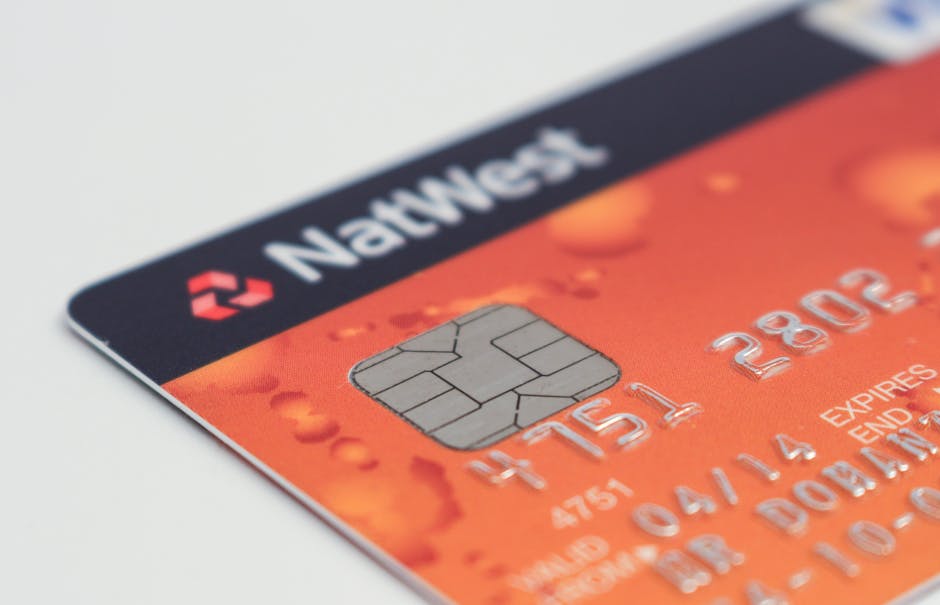Securing Bank Transactions In Leeds With Blockchain Development
Imagine a world where your bank transactions are completely secure, protected from any potential threats or breaches. With the advent of blockchain technology, this vision is becoming a reality in Leeds.
Blockchain development has emerged as a powerful solution to enhance the security and efficiency of financial transactions, ensuring that your hard-earned money remains safe and your personal information remains confidential.
Blockchain technology, at its core, is a decentralised ledger that records and verifies transactions across multiple computers. This innovative approach eliminates the need for intermediaries, such as banks or payment processors, reducing the risk of fraud and increasing transparency.
In Leeds, blockchain development is being leveraged to revolutionise how bank transactions are conducted. By implementing blockchain solutions, financial institutions can enhance security measures and protect against cyber attacks. Additionally, these solutions improve efficiency by streamlining processes and reducing transaction times.
Furthermore, blockchain development fosters trust within the financial ecosystem by providing an immutable record of all transactions. This empowers individuals to have full control over their finances while ensuring compliance with regulatory requirements.
In this article, we will explore the importance of securing bank transactions in Leeds through blockchain development and delve into the advantages it brings to both customers and financial institutions alike.
Get ready to embark on a journey towards safer and more efficient banking experiences!
Key Takeaways
- Looking for a Leeds Blockchain Development company?
- Blockchain development in Leeds is revolutionising bank transactions by enhancing security measures and protecting against cyber attacks.
- Blockchain solutions improve efficiency by streamlining processes and reducing transaction times.
- Secure bank transactions are important to protect against unauthorised access, prevent monetary loss, and safeguard personal information.
- Implementing blockchain technology with security features like biometric authentication and encryption techniques provides highly secure financial transactions.
Understanding Blockchain Technology

Blockchain technology, with its decentralised and transparent nature, has revolutionised the way financial transactions are secured in Leeds. This innovative technology provides a secure and efficient method for recording and verifying transactions across multiple parties without the need for intermediaries such as banks or government institutions.
However, implementing blockchain in the banking sector comes with its own set of challenges.
One of the key challenges of blockchain implementation is scalability. As more transactions are added to the blockchain network, it can become slower and less efficient. This issue arises due to the consensus mechanism used by most blockchain networks, which requires all nodes to agree on the validity of each transaction. To overcome this challenge, developers are exploring solutions such as sharding and off-chain transactions to increase throughput while maintaining security.
Another challenge is privacy. While blockchain provides transparency by design, certain financial transactions require confidentiality. Banks need to ensure that sensitive customer information remains protected while still benefiting from the advantages offered by blockchain technology. Solutions like zero-knowledge proofs and private smart contracts offer ways to address this concern.
Looking ahead, there are numerous future applications for blockchain technology in securing bank transactions beyond Leeds. It has the potential to streamline cross-border payments, reduce fraud through immutable records, and enable faster settlement times between financial institutions.
Understanding how blockchain technology works is crucial for securing bank transactions in Leeds effectively. Despite challenges related to scalability and privacy concerns, ongoing research and development efforts aim to overcome these obstacles. The future holds great promise for further advancements in this field that will enhance security measures within the banking industry.
The Importance of Secure Bank Transactions

In today’s digital age, it’s crucial to ensure that our financial interactions are safe and protected, creating a fortress around our money. With the increasing prevalence of bank fraud and cyber threats, it’s essential for banks to implement robust cybersecurity measures to safeguard their customers’ transactions.
Here are three reasons why secure bank transactions are of utmost importance:
- Protection against unauthorised access: The rise in sophisticated cyber attacks poses a significant risk to traditional banking systems. Hackers employ various techniques like phishing, malware, and identity theft to gain unauthorised access to sensitive customer data. By implementing stringent security measures, such as multi-factor authentication and encryption protocols, banks can reduce the chances of these malicious activities occurring.
- Prevention of monetary loss: Bank fraud not only compromises customer trust but also results in substantial financial losses. Secure bank transactions help prevent fraudulent activities such as unauthorised fund transfers or account takeovers, ensuring that customers’ hard-earned money remains safe within the banking system.
- Safeguarding personal information: In an interconnected world, personal information has become a valuable asset for cybercriminals who aim to exploit it for illicit purposes. By establishing secure bank transactions through advanced authentication methods and data encryption techniques, banks can protect customers’ personal information from falling into the wrong hands.
These reasons demonstrate why securing bank transactions is crucial in today’s digital landscape riddled with cyber threats.
Transitioning seamlessly into the subsequent section about the advantages of blockchain development in Leeds, we will delve further into how this innovative technology can address these concerns while revolutionising traditional banking practises without compromising efficiency or reliability.
Advantages of Blockchain Development in Leeds

By embracing the advantages of blockchain technology, you can experience a staggering 93% reduction in transaction settlement time, revolutionising the way financial processes are conducted. Blockchain development in Leeds offers numerous benefits that can enhance the security of bank transactions while ensuring data privacy and regulatory compliance.
One of the key advantages of blockchain technology is its ability to provide transparent and immutable records of transactions. Through its decentralised nature, all participants have access to a shared ledger that cannot be altered or tampered with, providing an added layer of trust and security. This transparency also helps in complying with regulations by enabling auditors to easily verify transactions without compromising data privacy.
Moreover, blockchain technology utilises robust encryption algorithms to secure sensitive information during transmission and storage. By using cryptographic hashes and digital signatures, it ensures that only authorised individuals can access and modify the data. This significantly reduces the risk of unauthorised access or data breaches, further enhancing security in bank transactions.
To illustrate these advantages visually, consider the following table:
| Advantages | Description |
|---|---|
| Increased transaction settlement speed | Blockchain technology reduces transaction settlement time by 93%, improving efficiency |
| Transparent and immutable records | All participants have access to a shared ledger that cannot be altered or tampered with |
| Enhanced data privacy | Robust encryption algorithms ensure sensitive information is securely transmitted and stored |
Leveraging blockchain development in Leeds presents significant advantages for securing bank transactions. By embracing this technology, you can revolutionise financial processes while ensuring data privacy and regulatory compliance. With faster settlement times, transparent records, and enhanced data privacy measures, blockchain technology is poised to transform how financial transactions are conducted. [Sentence transition into subsequent section about ‘enhancing security in financial transactions’].
Enhancing Security in Financial Transactions

With the implementation of blockchain technology, you can significantly bolster the security measures in your financial transactions. Blockchain offers a range of features that enhance security and protect against fraud, making it an ideal solution for securing bank transactions in Leeds.
One of the key ways that blockchain enhances security is through biometric authentication. By incorporating biometrics such as fingerprint or facial recognition into the transaction process, you can ensure that only authorised individuals are able to access and make changes to sensitive financial data. This adds an additional layer of security, as biometric information is unique to each individual and can’t be easily replicated or stolen.
In addition to biometric authentication, blockchain also utilises advanced encryption techniques. Encryption is used to secure the data being transmitted between different nodes on the network, ensuring that it can’t be intercepted or tampered with by unauthorised parties. The use of encryption makes it virtually impossible for hackers to gain access to sensitive financial information.
Furthermore, blockchain technology ensures transparency and immutability of transactions. Each transaction is recorded on a decentralised ledger that is accessible to all participants in the network. This means that any attempts at fraudulent activity or tampering with transaction records will be immediately detected by all participants.
By implementing blockchain technology with its robust security features such as biometric authentication and encryption techniques, you can rest assured knowing that your financial transactions are highly secure and protected against fraud.
In the subsequent section about improving efficiency with blockchain solutions…
Improving Efficiency with Blockchain Solutions

To streamline operations and increase productivity, you can leverage the power of blockchain solutions to make your financial transactions as smooth as silk. Blockchain technology offers a decentralised and transparent platform that can revolutionise the way you conduct business. However, it’s crucial to understand the challenges associated with blockchain adoption.
One of the main challenges in adopting blockchain for financial transactions is scalability. Traditional blockchains have limited transaction processing capabilities, which could hinder efficiency when dealing with a large volume of transactions. However, advancements in blockchain development have led to the emergence of scalable solutions like sharding and side chains. These solutions address the scalability challenge by allowing parallel processing of transactions.
Another potential risk of using blockchain for financial transactions is security vulnerabilities due to smart contract coding errors or malicious attacks on the network. It’s essential to conduct thorough audits and implement robust security measures to mitigate these risks. Additionally, privacy concerns arise when using public blockchains that store transaction data openly. This issue can be addressed by utilising permissioned or private blockchains that restrict access to authorised participants only.
Despite these challenges and limitations, integrating blockchain solutions into your financial ecosystem holds immense potential for improving efficiency. By automating processes through smart contracts, you can eliminate intermediaries and reduce transaction times significantly. Moreover, the transparency provided by blockchain technology enhances trust amongst stakeholders involved in financial transactions.
As we transition into discussing how building trust in the financial ecosystem plays a vital role in securing bank transactions in Leeds with blockchain development…
Building Trust in the Financial Ecosystem

Building trust in the financial ecosystem is crucial for ensuring the smooth and secure flow of transactions. In today’s digital age, where data breaches and fraudulent activities are prevalent, it becomes even more important to establish a system that can guaranty transparency and eliminate fraud. This is where blockchain technology comes into play.
With blockchain development, banks in Leeds can build transparency by creating a decentralised ledger that records all transactions in a tamper-proof manner. This means that every transaction is securely logged and cannot be altered or deleted without consensus from all participants involved. This level of transparency allows for easy auditing and verification of transactions, giving customers confidence in the integrity of the financial system.
Furthermore, blockchain technology can help eliminate fraud by implementing smart contracts. These self-executing contracts automatically enforce predefined rules and conditions, reducing the risk of human error or malicious activities. For example, when a customer initiates a transaction, smart contracts can ensure that sufficient funds are available before proceeding with the transfer. This not only prevents unauthorised transactions but also reduces the likelihood of fraudulent activities.
In addition to building trust and eliminating fraud within the banking sector, blockchain development can also extend its benefits to other areas of the financial ecosystem. For instance, by leveraging blockchain technology, insurance companies can streamline their claims process by verifying policyholder information and validating claims efficiently.
Overall, building trust in the financial ecosystem through blockchain development offers numerous advantages such as increased transparency and reduced fraud risk. By embracing this technology, banks in Leeds can enhance customer trust while ensuring secure and efficient bank transactions for everyone involved.
Contact us to discuss our services now!
